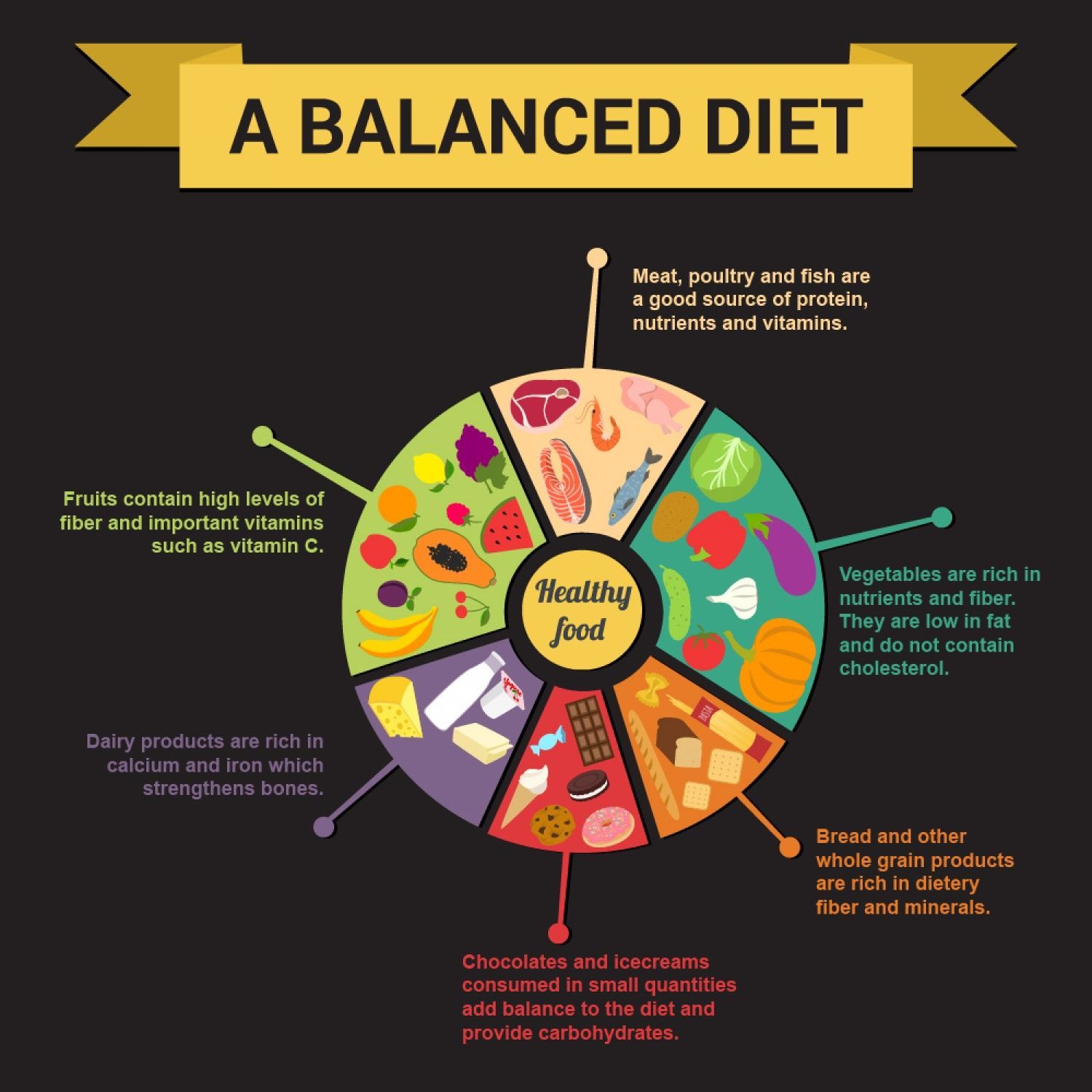
The Role of Balanced Diet in Maintaining Good Health
Eating a balanced diet is a crucial aspect of leading a healthy lifestyle. It provides the necessary nutrients, vitamins, and minerals that our bodies need to function properly. A balanced diet consists of a combination of various food groups in the right proportions. Let’s take a closer look at the significant role a balanced diet plays in maintaining good health.
Ensures Adequate Nutrition
A balanced diet ensures that we receive all the essential nutrients our bodies require. These nutrients include carbohydrates, proteins, fats, vitamins, and minerals. Each nutrient has a specific function in the body. Carbohydrates provide energy, proteins help in tissue repair and growth, fats aid in hormone production, while vitamins and minerals contribute to numerous bodily functions, such as bone health, immune system strength, and metabolism.
Consuming a variety of foods helps us obtain a wide range of nutrients necessary for our overall well-being. Fruits and vegetables are excellent sources of vitamins and minerals, while whole grains and lean meats are packed with essential carbohydrates and proteins, respectively. By including these different food groups in our daily diet, we can avoid nutrient deficiencies and promote optimal health.
Weight Management
A balanced diet plays a pivotal role in maintaining an appropriate body weight. Incorporating the right amounts of carbohydrates, proteins, and fats in our diet helps us achieve a healthy body composition. It is important to note that a balanced diet does not imply extreme restrictions or fad diets but rather focusing on overall moderation and portion control.
A well-balanced diet includes an adequate intake of fruits, vegetables, whole grains, lean proteins, and healthy fats. These foods tend to be less calorie-dense and provide essential nutrients while keeping us satiated. By consuming a balanced diet, we can effectively manage our weight and reduce the risk of obesity, which is associated with various chronic diseases like diabetes, cardiovascular disorders, and certain types of cancer.
Maintains Gut Health
Gut health is vital for overall well-being, as the gastrointestinal system is responsible for the digestion and absorption of nutrients. A balanced diet rich in dietary fiber is essential to maintain a healthy gut. Fiber supports digestion, prevents constipation, and promotes the growth of beneficial bacteria in our gut.
Whole grains, fruits, vegetables, and legumes are excellent sources of dietary fiber. Including these foods in our diet can regulate bowel movements and prevent gastrointestinal disorders. Additionally, a healthy gut has a positive impact on our immune system, as a significant portion of our immune cells reside in our gut.
Prevents Chronic Diseases
A well-balanced diet can significantly reduce the risk of chronic diseases. Consuming a variety of nutrient-rich foods provides antioxidants, which play a crucial role in neutralizing harmful free radicals in our bodies that can cause cell damage and lead to diseases such as cancer, heart disease, and Alzheimer’s.
By maintaining a balanced diet that includes colorful fruits and vegetables, whole grains, lean proteins, and healthy fats, we can enhance our natural defense mechanisms and reduce the risk of chronic diseases.
Conclusion
It is evident that a balanced diet is paramount for maintaining good health. It ensures adequate nutrition, promotes weight management, maintains gut health, and prevents chronic diseases. By adopting a balanced diet that consists of a wide range of nutrient-rich foods, one can lead a healthier and more fulfilling life.

